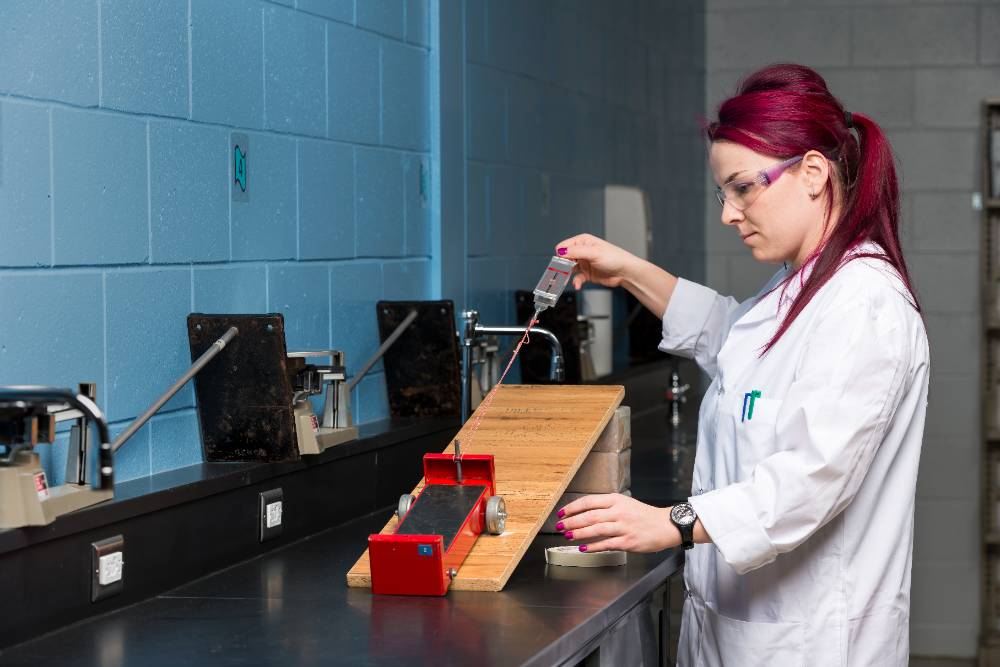The Physics Department
The UAF Physics Department works closely with research members of the UAF Geophysical
Institute including the space physics and aeronomy groups. The department also has
close ties to the UAF Atmospheric Sciences, Chemistry & Biochemistry and Geosciences
& Geophysics Departments. |
Why Choose UAF Physics?
Physics Degree Programs

The undergraduate curriculum provides a solid foundation in classical and modern physics, with an emphasis on its experimental aspects. Students completing this curriculum should be prepared for careers in education, industry, and for advanced work in physics, applied physics, and related sciences.

Graduate work is offered in various areas of physics. Faculty and student research programs currently emphasize investigations of auroral, ionospheric, magnetospheric and space plasma physics, the physics and chemistry of the upper and middle atmosphere, radio wave propagation and scattering, solar-terrestrial relations & condensed matter physics.


